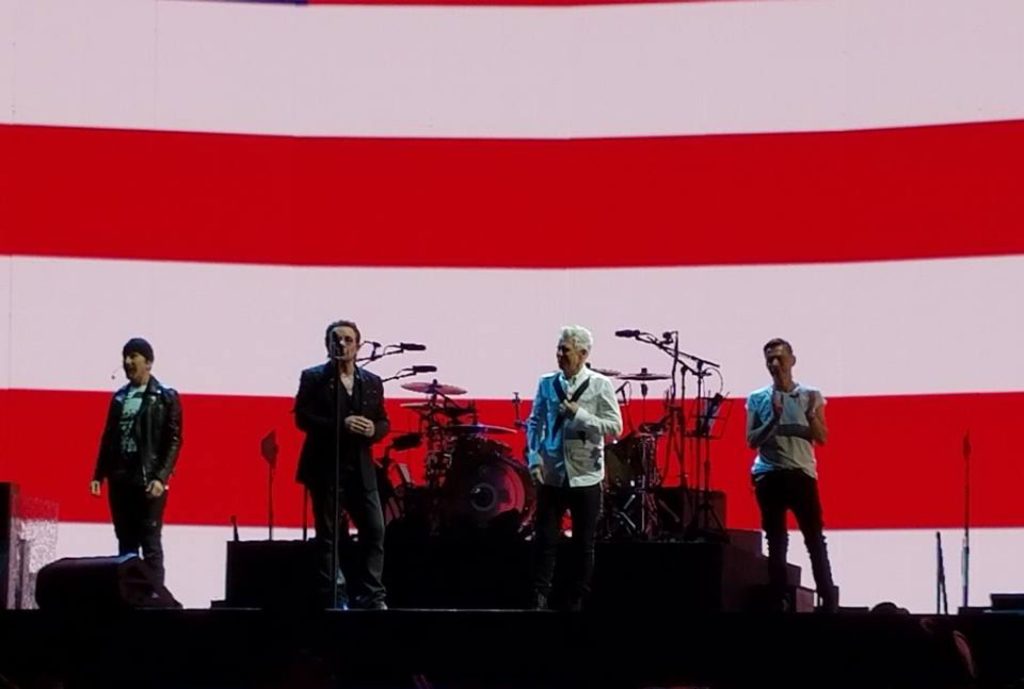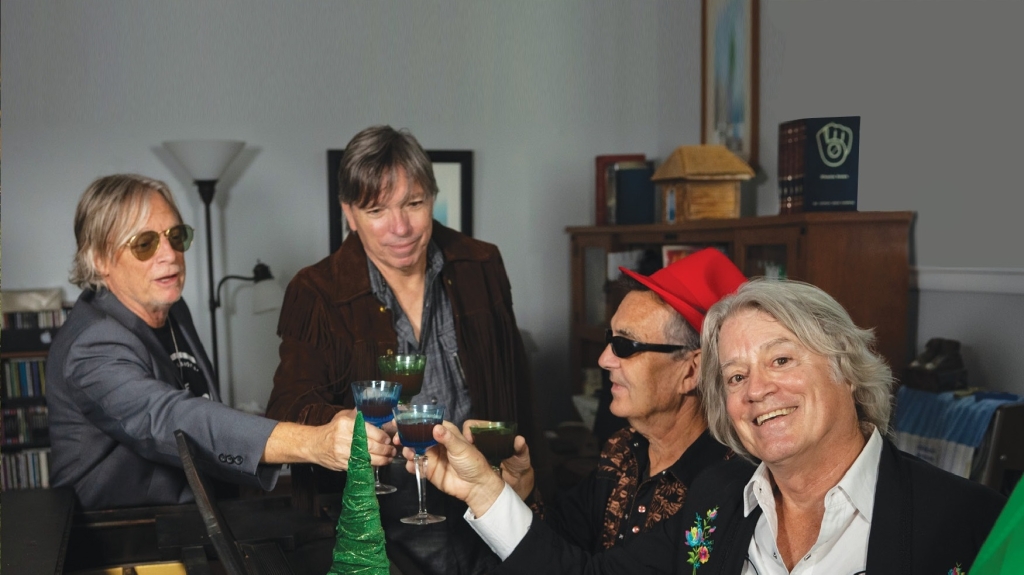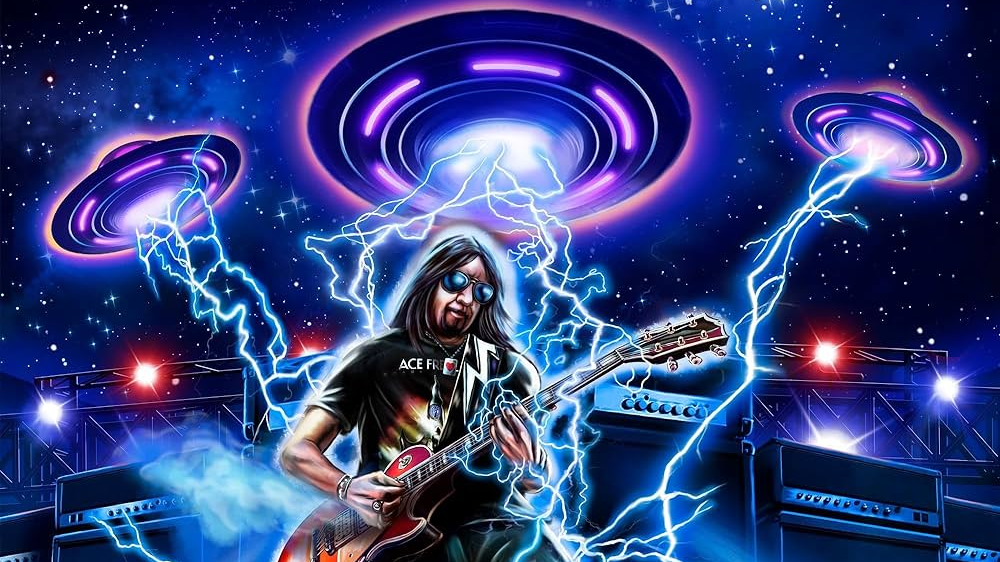
On Aug. 13, 2003, an unknown singer from Northern Ireland named Ricky Warwick found himself opening for Def Leppard at the Erie County Fairgrounds. He was armed with nothing but an acoustic guitar and a 30-minute window with which to make an impression, but the fact that he’s fronting UK-based hard rock outfit Black Star Riders 20 years later tells you what that spot did for his career.
BSR just celebrated its 10th anniversary last year and dropped its fifth studio album, “Wrong Side of Paradise,” in January, which means that we already have a formidable contender for hard rock album of the year. I caught up with bassist Robbie Crane (Ratt, Lynch Mob) recently to talk about his experience working with Ricky and how the band plans to forge on now that founding guitarist Scott Gorham has stepped away to focus on Thin Lizzy.
Crane’s playing is an asset to every band he joins and he’s settled into this role quite nicely since replacing Marco Mendoza in 2014.
MNOD: “Wrong Side of Paradise” marks the band’s first album release without founding member Scott Gorham in the lineup. How did his exit impact the new project’s direction?
Crane: I think we’re always going to have that Lizzy-esque sound. The flavor of Scott’s playing is there, but I also feel that his departure allowed us to find our own identity. Ricky and Christian wrote really strong material for this album that gives us the chance to chart our own path.
MNOD: This is also your first album for Earache Records. What attracted you guys to this particular label?
Crane: Well, we were on Nuclear Blast before and I have nothing but good things to say about them, but I do think Earache will be good for us. They’re not a boutique label, but they’re invested in us and have been in constant contact with us throughout the process. That really makes a difference. They’ve also been fantastic about implementing ideas. I think they’ve even put up billboards here in Los Angeles to promote the album, which is really cool. They believe that this is a great record and have embraced it. They came up with some interesting cover art, as well. They’ve been fantastic so far. This is an album that captured a very passionate time for us, so we hope that it touches people. We’re not a legacy band, but we’re not new either. We’ve evolved with the times and we’re still humming along. I think there’s a strong market for making an album if you’re willing to work for it. Opportunity is what you make it, so you have to invest in what you believe in.
MNOD: You’re scheduled to begin a UK tour soon. What are the chances of the band hitting America in the future?
Crane: That’s our intention, but it has to be a realistic thing. We’re not spring chickens. We would have to find the right situation on a larger support scale to make it worth the time.
MNOD: Tell me about the new record specifically. “Better Than Saturday Night” definitely has a Lizzy vibe to it and everything has a live feel that instantly draws you in.
Crane: That song has a major Lizzy sound to it. Is it intentional? Maybe, but I think Ricky writes what he feels and is a great lyricist. He’s never tried to copy what he’s done before. We love getting in the same room together old-school style. Just five guys in a jam. We’re all so different culturally, but there’s a real family-oriented vibe to this band. We all get along well and I’ve enjoyed the growth we’ve experienced since I joined the band. ‘Another Saving Grace’ is the record that we made previously and it came out during the pandemic, but that’s one that I hope will gain attention one day.
MNOD: Was Thin Lizzy a band that had an impact on you as a younger musician?
Crane: Absolutely. I remember hearing ‘Bad Reputation’ as a kid and not knowing who it was, but I loved it. Phil’s melodies were amazing and the song structures were so cool.
MNOD: You also had a memorable run in Ratt a while back. How do you reflect on that experience now?
Crane: I had a great time in Ratt, because I was a fan before I ever joined. It was cool for me. ‘Infestation’ is an album that I look back fondly on, because it represents a particular snapshot in time. We made three records in the 16 years I was in the band, but it wasn’t always a good time for a lot of us. There were drugs and alcohol that started to creep in to cause the whole thing to disintegrate after a while. I was on my way out in 2008. I knew it was time to go and I was ready to move onto other things, but I ended up sticking around longer.
MNOD: How did you navigate the fact that certain fans were always going to want the classic lineup to reunite?
Crane: That’s a good question. I think I always looked at myself as a stop gap or a placeholder for whenever Juan was ready to come back. I never thought of it as me replacing him or taking over. I was just keeping his seat warm until he was ready to return. I remember running into him one time at a benefit for the Japanese Earthquake and we got along really well. He’s a prideful player, but I never made the gig about me. I just filled in for my friend Jerry Dixon in Warrant for a few shows and I approached that the same way. I think that’s why I continue to work and get gigs consistently. I’m not trying to take anyone’s job. I just want to honor the music and be professional.
MNOD: What was the pandemic like for you as someone who’s constantly working?
Crane: My family and I were able to travel, which was great for us. We spent a lot of time together in an RV, so, while it felt like the world stopped, it was actually a positive for us. I knew I had to get vaccinated to keep working, so that’s what I did.
“Wrong Side of Paradise” is available now wherever music is disseminated, but do us all a favor and pay for a physical copy.






Leave a comment